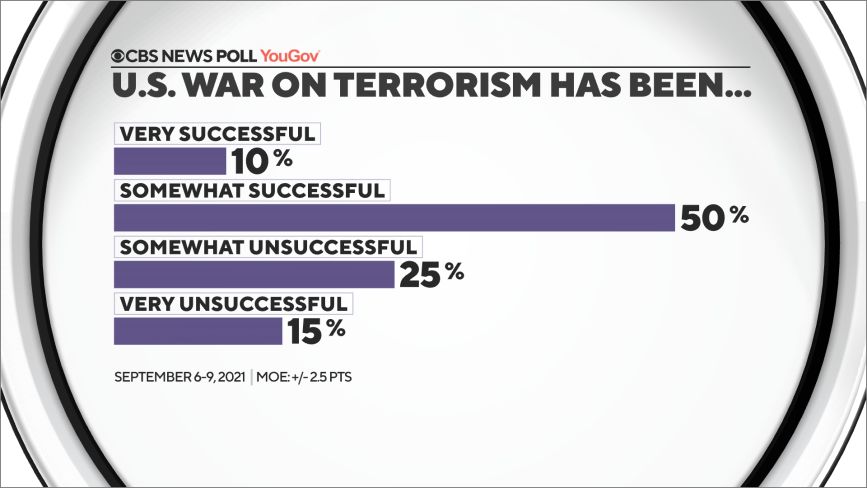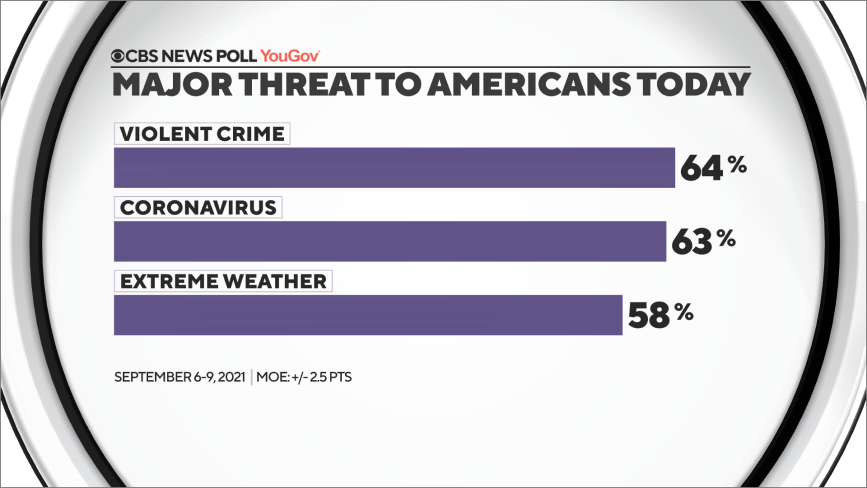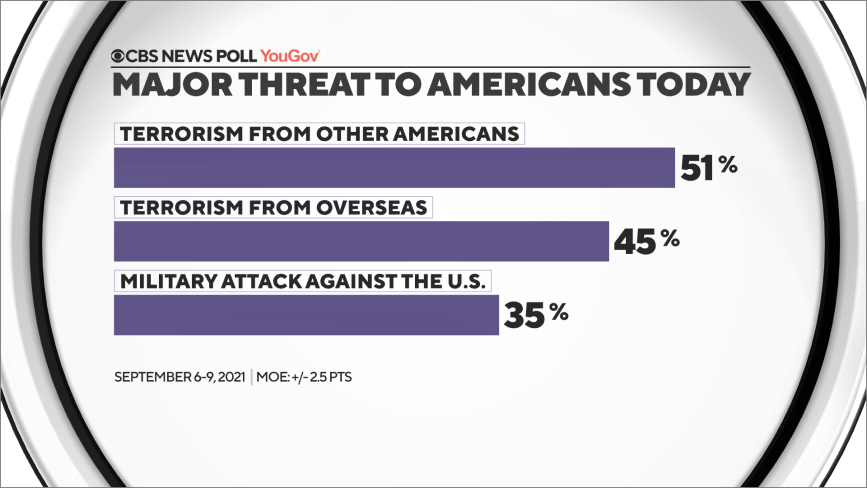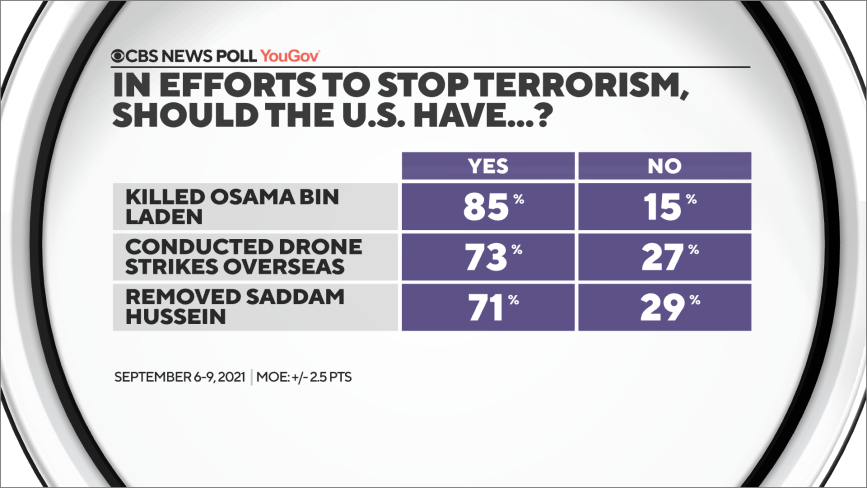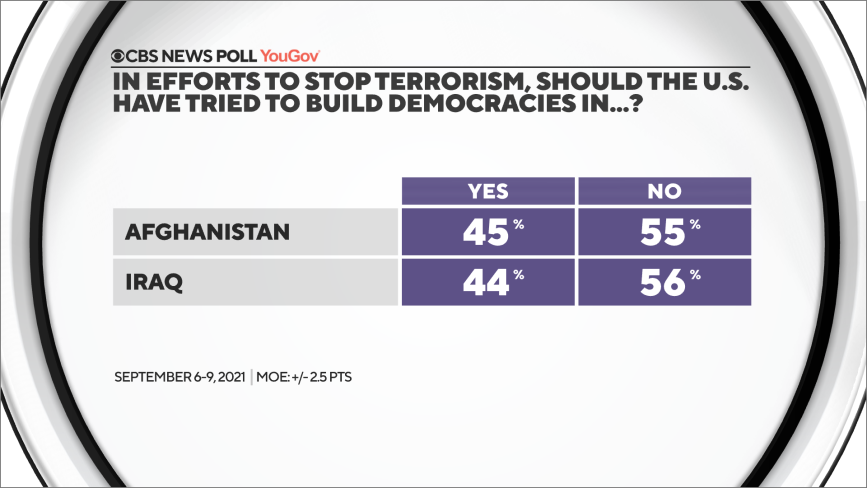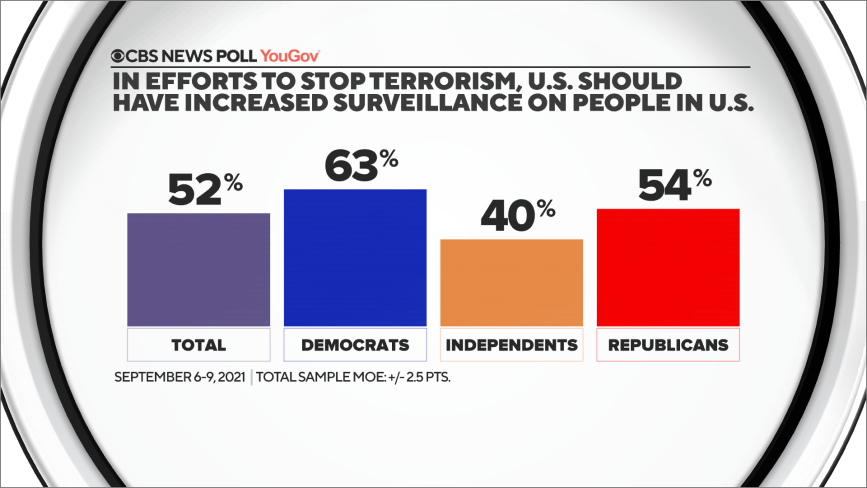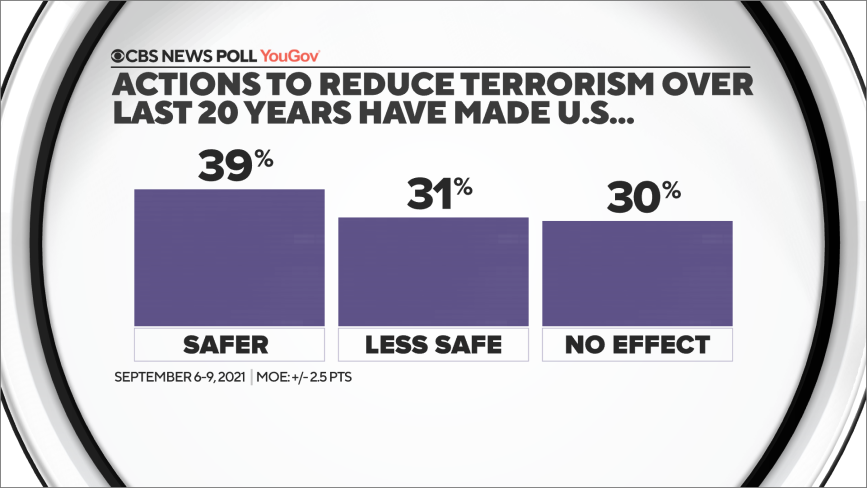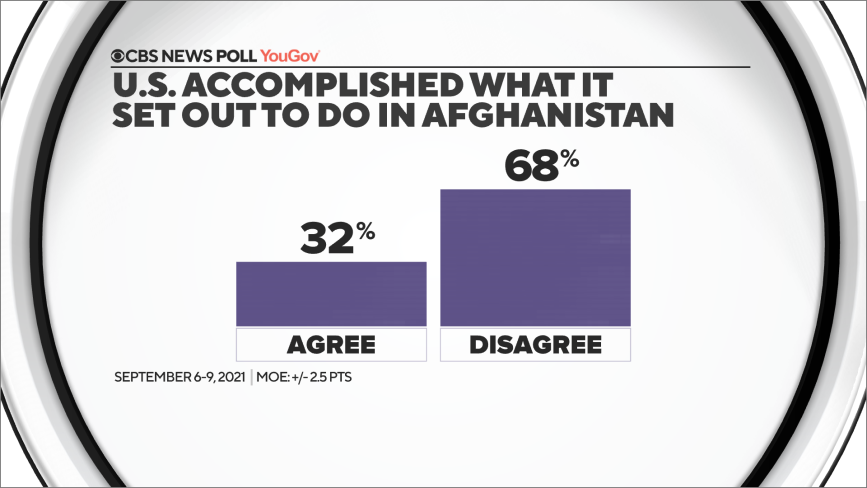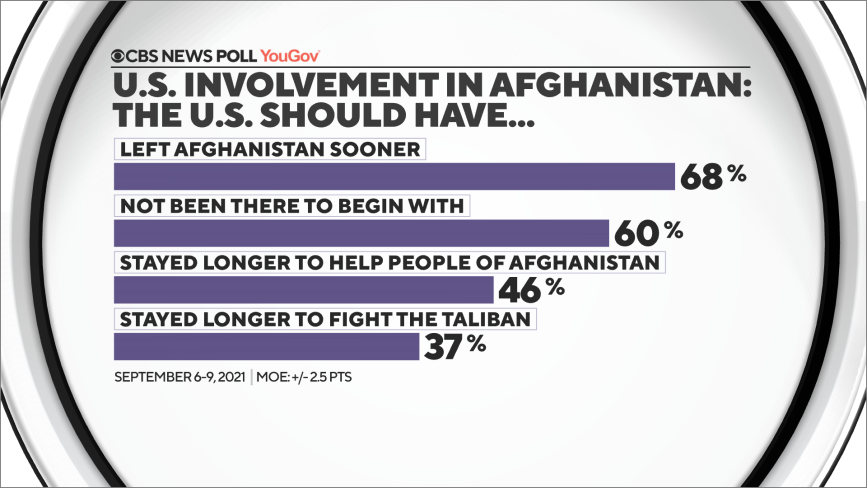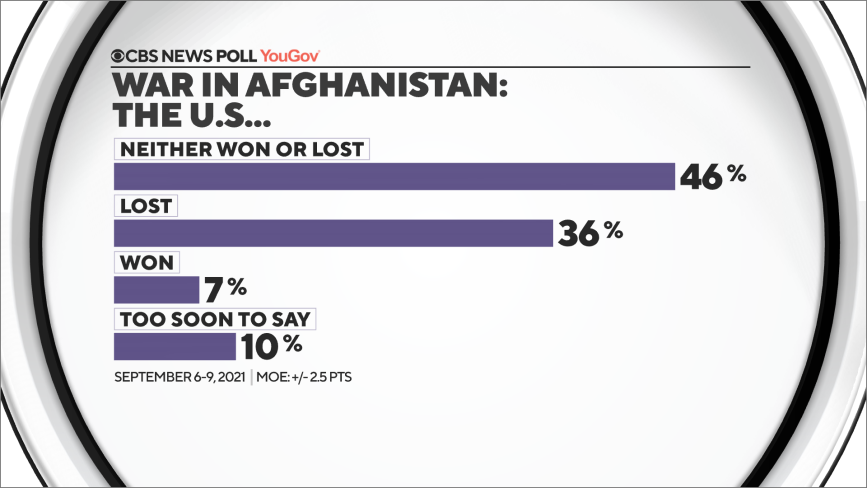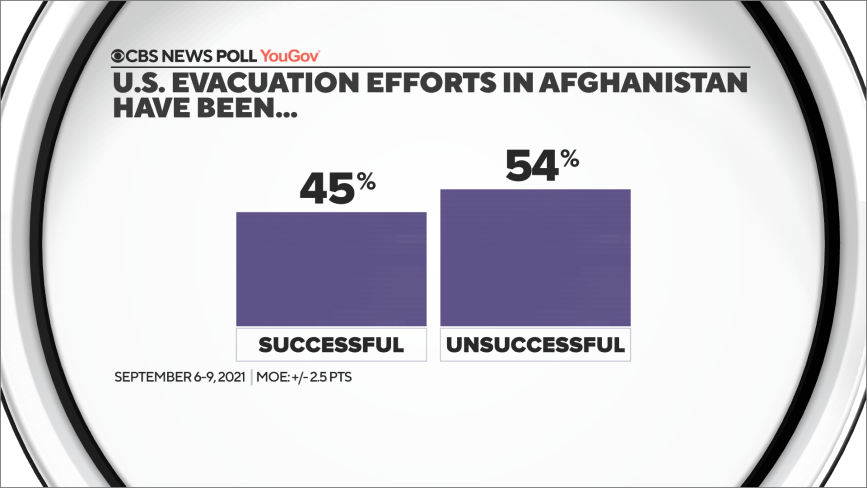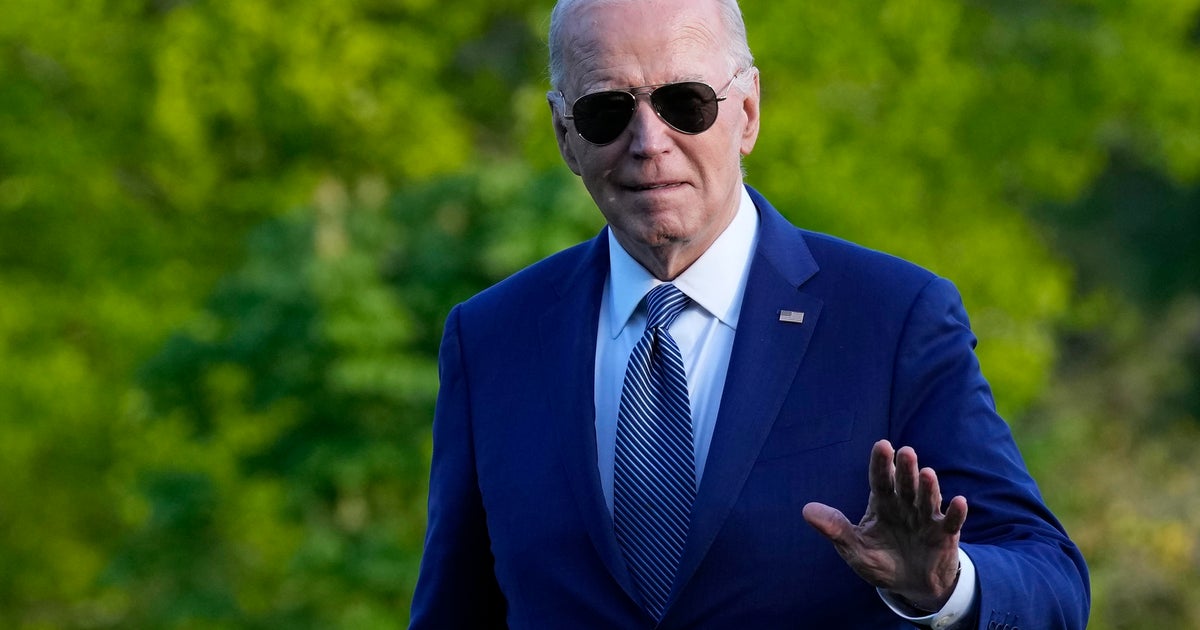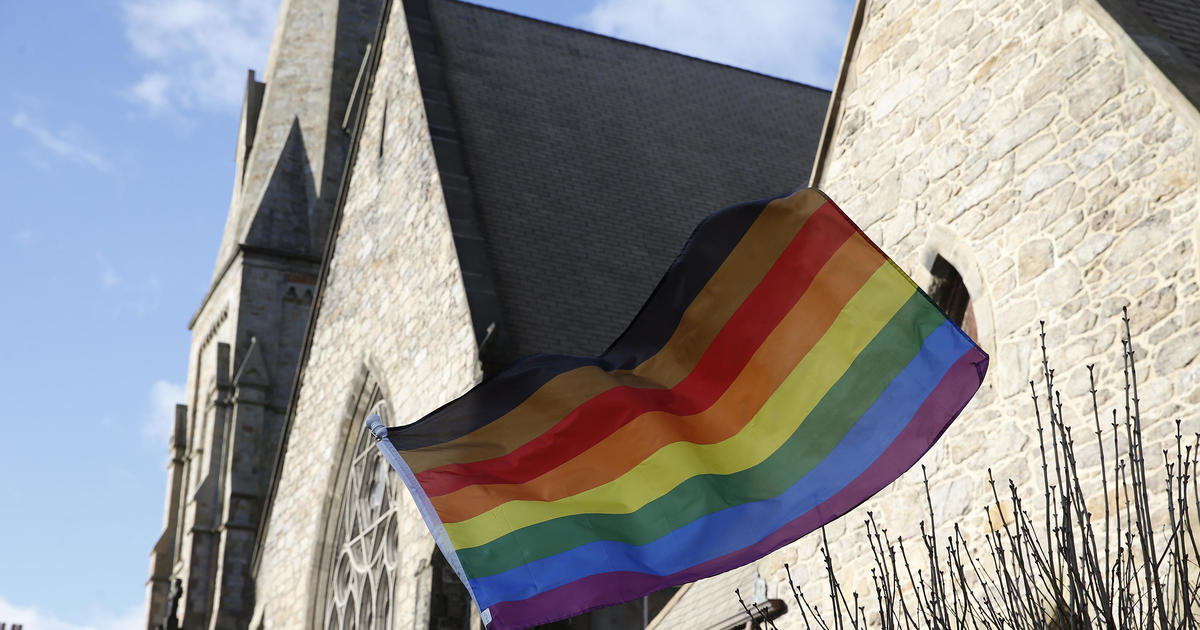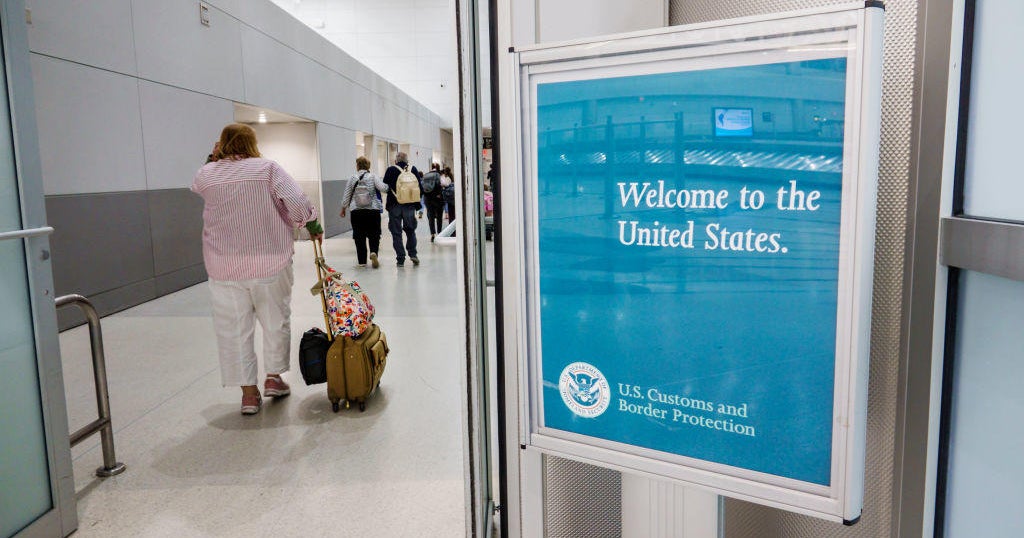20 years after 9/11, most see some success in efforts against terrorism, but threats remain - CBS News poll
In the twenty years since 9/11, most Americans feel the nation's efforts to reduce terrorism — sometimes referred to as the war on terrorism — have been at least somewhat successful, but that hardly means the threat is gone.
They also see today's terrorism threat in context as, perhaps unfortunately, just one of many things they're concerned about, outranked by perceived dangers from coronavirus, extreme weather, and violent crime. And many believe any threat of terrorism comes as much or more from other Americans as it does from overseas.
Most don't feel particularly at risk from terrorism where they live, even if they think there is a general threat to the U.S. This has described the public sentiment since the 9/11 attacks: more concern about an attack on the U.S. generally than one in their own area. The specific threat of terrorism today elicits feelings of unease more so than outright danger.
Efforts to stop terrorism
Specific steps taken by the U.S. to try to reduce terrorism over the last twenty years are viewed today as a mix of things that people say the U.S. should, and should not, have done. There are some tactical, specific parts that a larger majority of Americans say the U.S. should indeed have done, like the killing of Osama bin Laden and the removal of Saddam Hussein. But Americans are more critical of U.S. efforts to build democracies in Iraq and Afghanistan.
The U.S. didn't only take actions abroad but at home as well, and one, increased monitoring and surveillance of people in the U.S. is met with more mixed opinions. Just over half think it should've happened — a slight majority that does include most Democrats and Republicans.
So on balance, not everyone feels the efforts have had the net effect of making the U.S. safer from terrorism over these 20 years, and a third feel the U.S. is, in fact, less safe. And perhaps because the efforts over the years have spanned both Democratic and Republican administrations, the "safer" number is comparable for people of both parties.
War in Afghanistan
When they look back on the war in Afghanistan, which began in response to the 9/11 attacks, a majority of Americans say U.S. troops should have left Afghanistan sooner than it did. Even so, most don't think the U.S. accomplished what it set out to do there 20 years ago.
Six in 10 now say the U.S. should not have been in Afghanistan to begin with. This is in stark contrast with when we look back at the wide public support for this war back in 2001. In polling conducted the day after U.S.-led military attacks were launched in Afghanistan, 87% of Americans approved of that military action, including large majorities across demographic groups and political affiliation.
But after the capture and killing of Osama bin Laden in 2011, and as U.S. casualties mounted over time, our polling over the years showed a growing percentage of Americans wanted U.S. troops out of Afghanistan.
Given those views, and the fact that many feel the U.S. did not achieve its objectives, when they assess the war overall, the prevailing view is that the U.S. neither won nor lost, and more pick lost than won.
And so today, most now support the removal of U.S. troops from Afghanistan. (Even, as we've found here and in other polling, many disapproved of the way in which it was handled last month.)
Nor do most call efforts to evacuate Americans successful. Most Republicans and independents say these efforts have been unsuccessful, and they are joined by a third of Democrats.
President Biden's overall job approval is at 50%, also the same as two weeks ago, after having dropped eight points between July and the events in Afghanistan.
Mr. Biden's evaluation for handling the economy is down from July, as assessments of the national economy have dipped from the summer too. While this metric is often marked by partisanship, views that the national economy is not good have risen four points since July. And Americans' optimism about the economy has gone down along with that.
This CBS News/YouGov survey was conducted with a nationally representative sample of 2,011 U.S. adult residents interviewed between September 6-9, 2021. This sample was weighted according to gender, age, race, and education based on the U.S. Census American Community Survey, and the U.S. Census Current Population Survey, as well as 2020 presidential vote. The margin of error is ±2.5 points.
